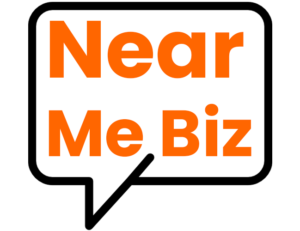Selecting the right label printer for your business involves navigating a vast array of options, making the process potentially overwhelming. The most reliable industrial label printer suppliers recognise this challenge and are dedicated to providing you with the expertise needed to make an informed decision tailored to your specific needs. This comprehensive guide will walk you through crucial considerations, offering professional advice to ensure you find the perfect label printer for your business.
What is the Application?
Understanding the specific needs of your application, whether it’s a beauty product label or a logistics label, is the cornerstone of choosing the right label printer. Your printing requirements will vary based on whether you’re producing address labels, shipping labels, product labels, or labels for perishable goods. Here’s a closer look at different applications:
Address Labels
When you need access to shipping or logistic labels, direct thermal printers might be suitable due to their cost-effectiveness. However, if your labels need to withstand environmental conditions during transit, thermal transfer printers may offer more durability.
Product Labels
Suppose your primary focus in the case of industrial label printers is on creating product labels that include barcodes and graphics. You may also need a printer that offers higher resolution printheads, such as 300dpi or 600dpi, for optimal print quality.
Perishable Goods
Labels for perishable goods may require special consideration. Direct thermal printers are often chosen for short-term use, but if these labels are exposed to heat, sunlight, or moisture, thermal transfer technology becomes crucial for longevity.
Compliance Labels
If your business involves compliance labelling, where adherence to industry or regulatory standards is essential, choosing a printer with precise and consistent printing capabilities becomes paramount.
Customised Labels
For businesses creating customised labels with unique graphics or 2D barcodes, a higher dpi printhead, such as 300 dpi, may be necessary to ensure the details are accurately reproduced.
How many labels will you be printing?
Daily label printing volume is a key factor in choosing the right industrial label printer. For low volumes (up to 1000 labels daily), a Desktop Printer suffices. Mid-range printers are recommended for up to 10,000 labels daily, while Industrial Printers are essential for high-performance needs, handling up to 200,000 labels per day in a 24/7 industrial environment.
What size labels do you need to print?
Consider the width of your labels, impacting the type of printer required. Printheads come in different sizes (2″, 4″, 6″, or 8″), with the standard 4-inch size often recommended for general use.
What will you be printing?
The type of printhead (200dpi, 300dpi, or 600dpi) on your industrial label printer depends on what you’re printing. Standard resolution (200 dpi) is suitable for crisp barcodes and text, while higher resolutions are recommended for small graphics or 2D barcodes, albeit with reduced print speed.
Specific Questions and Features
Are you printing labels with different widths?
Consider the position of the media on the print head. Centred media may be self-levelling, while biased media might require head pressure adjustments.
Flat Head or Near Edge technology?
Different industrial label printers use either flathead or near-edge technology, impacting print quality at higher speeds. Flathead printers are reliable and require less maintenance, while Near Edge technology provides improved print quality.
Size of Label Roll
The size of the label roll depends on the printer class, ranging from 5″ for desktop printers to 8″ for medium-volume and industrial printers. Larger rolls mean less frequent changes, improving efficiency.
Ribbon Length
Ribbon length calculations are crucial for efficient label printing, varying based on the printer and label specifications. Understanding this ensures seamless operations without interruptions.
Media Sensors
Calibrating the industrial label printer to your labels is essential, and most printers have both gap and black mark media sensors. This ensures accurate and consistent printing, particularly if using unique label materials like card tag labels or transparent labels.
Ribbon-Save
The Ribbon-Save feature is beneficial for optimising ribbon usage, particularly for long labels with minimal printing. It’s a cost-effective solution for reducing waste while maintaining print quality.
Interface Options
Most thermal printers offer parallel, USB, and serial interfaces, with additional LAN and wireless LAN interfaces available as optional. Understanding these options ensures seamless integration with your existing systems.
Printer Options
Cutters
Available on most printers, cutters facilitate efficient label cutting, with options for guillotine or rotary cutters. This feature is particularly useful for managing label sizes and materials efficiently.
Built-in Label Rewind
This option allows labels to be rewound within the printer after printing. It provides a convenient and space-saving solution, especially in industrial settings.
Peel & Present
This option automatically separates the label from the backing paper. Therefore, it is impressive that to has been designed to expedite label application. It’s a time-saving feature, especially when dealing with high-volume printing.
Additional Printer Features
Explore additional features such as RFID capabilities, which allow for advanced tracking and data management, or colour printing options for enhanced label visibility.
Conclusion
Armed with this comprehensive guide, you are now well-equipped to make an informed decision when choosing the perfect label printer for your business needs.
DAL stands out as the premier label printing company, offering unparalleled expertise and cutting-edge solutions. With a commitment to precision and innovation, DAL provides customised label printing services that cater to diverse industries. Their state-of-the-art technology, attention to detail, and dedication to customer satisfaction make them the go-to choice for businesses seeking top-quality labels.




